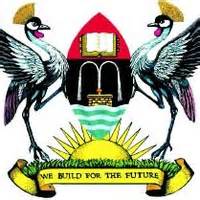Nature Palace Botanical Gardens
Institution Code: KAMPA
BGCI Member: No

About the Nature Palace Botanical Gardens
The Nature Palace Botanical Garden (NPBG), found in Uganda (East Africa) is a Community Development and Well-being-focused garden administered by Nature Palace Foundation. The garden has special emphasis on medicinal plants that are very essential to the welfare of poor communities in terms of known medicinal values. In 2005, NPBG was registered as a participant in the world-wide implementation of the International Agenda in support of Plant Conservation, Environmental Awareness and Sustainable Development.
In 2005, NPBG won an a grant from HSBC Bank Plc to implement the 'Poverty Alleviation and Health care Promotion through Conservation'(PHP-C) project. Under this project NPBG is strengthening community collaboration in conservation and developing a preliminary national list of threatened plants while documenting Indigenous Knowledge on Medicinal Plants. As a result of this project, there is more and closer collaboration between the Botanic Garden and the neighboring communities. A strong Community Conservation and Development group emerged and they are involved in the cultivation as well as promoting conservation of indigenous medicinal plants. The group is also involved in processing herbal formula for sale to other people in the community and beyond thereby improving on their income and livelihoods.
For more information about the PHP-C project please contact David at: naturepaldn@gmail.com
Traditional Medicine Day, 31st August
Uganda joins other African countries to mark the African Traditional Medicine Day on every 31st of August.
This day is very important for African countries since close to 80% of the population in Africa continue to rely on traditional medicine for healthy delivery. The day also underscores the need for conservation of Medicinal plants.
Nature Palace Foundation is involved in Conservation of Uganda’s biodiversity with special interest in Plants with Medicinal properties (which of course most have). We are happy to see the increasing appreciation of the contribution of Medicinal plants to the well-being of the population, especially the poorer, and unfortunately, broader layer of the population.
Main Address:
Nature Palace Botanical Gardens
Jandira/Luwule
PO Box 29455
Kampala
256414 Uganda
Telephone: +256-772-625963
Fax:
URL: http://botanic.naturepalace.net/
Primary Email: naturepaldn@gmail.com
Poverty Alleviation and Healthcare Promotion through Conservation (PHPC)
Utilising local knowledge of native medicinal plants to improve livelihoods, promote community participation in plant conservation and counteract loss of plant resources through habitat destruction.
• Conserving threatened native flora
• Improving community access to medicinal plants
• Establishing home herbal gardens
• Supplementing household incomes
ABOUT
Since its initiation in 2007, Nature Palace has worked with the Twekembe Development Association to involve community groups in educating tourists and non-local Ugandans about native medicinal plants.
Three community groups have participated in strategic planning; identification of priority plant species; and development of a demonstration herbal garden and a corresponding visitor education programme.
Activities include distribution of planting material among community members; training in propagating and financially valuing medicinal plants; education and awareness activities; and cultivation of home herb gardens.
IMPACT
PHPC has successfully improved community-botanic collaboration in Uganda’s plant conservation programmes. At a local level, the project promotes social cohesion, encouraging community members to work together to tackle common challenges.
Wider environmental and social outcomes include increased protection of threatened plants, improved local and country-wide awareness about medicinal species, and increased local responsibility for these species, due to their enhanced role in livelihoods. Additionally, the project appears to have resonated with local women (accounting for 80% of participants), thus providing a potential source of empowerment.
WHAT’S NEXT?
PHPC has evolved into a long-term sustainable initiative. It is anticipated to remain a continuous partnership between Nature Palace and the local community.
PRACTITIONERS & SPONSORS
David K. Nkwanga, Executive Director, Nature Palace Botanic Garden
HSBC Investing in Nature (through Botanic Gardens Conservation International)


Community-based Adaptation and Plant Conservation through Waste-to-Energy Recycling
Part of Nature Palace Foundation's Adapt Plus initiative, this project provides alternative cooking energy and organic manure for communities, substituting environmentally-damaging charcoal and firewood with recycled bio-waste.
- Promoting community resilience
- Saving plant species
- Improving community health
- Reducing pollution
Duration: January 2010 to January 2014
ABOUT
A simple project with far-reaching benefits: climate change mitigation, biodiversity conservation, community collaboration and economic gain through sustainable livelihoods. Nature Palace works with Pamoja Cleantech and The Renewable Energy Incubator of Makerere University to deliver training, education and support to participating communities.
So far, Nature Palace has trained two local and two non-local groups in making and using fuel briquettes (flammable “bricks” of organic matter) as an alternative to traditional three-stone cooking stoves. Still widely used, the stoves cause frequent injuries and harmful indoor pollution from wood smoke and charcoal fumes.
Another key objective is addressing poverty and boosting livelihoods in poor suburban communities. Nature Palace creates links between participants and suburban markets, supporting commercial production and sale of briquettes as a profitable and cohesive community-wide enterprise.
Communities which are less reliant on non-renewable energy have increased adaptability and capacity to cope with climate change, protecting their natural resources and creating high potential for carbon trade as a long-term income-generating option.
Encouraging families to switch to cleaner, more efficient bio-waste and briquettes improves community health. Additionally, it aids social empowerment and productivity by negating the need for women and children to expend time and energy gathering firewood, also a contributor to local deforestation.
Briquette stove © Nature Palace Botanical Gardens
IMPACT
The project has successfully addressed deforestation and conservation; indoor pollution and community health; empowerment of women and suburban poverty in Kampala.
Nature Palace delivers community-based conservation education and training, encouraging social cohesion and development by enabling communities to run profitable briquette businesses. As a result, more households are adapting to use bio-waste briquettes instead of the firewood, charcoal and traditional stoves associates with widespread deforestation, pollution and health risks.
WHAT’S NEXT?
Nature Palace has made plans for community groups and interested private entrepreneurs to carry on the project as an income-generating enterprise which continues to meet communities’ social and environmental needs.
PRACTITIONERS & SPONSORS
David K. Nkwanga, Executive Director, Nature Palace Botanical Gardens
Makerere University Renewable Energy Incubator
HSBC Investing in Nature (through Botanic Gardens Conservation International)








